Urban Woman’s Attempt To ‘Rescue’ Barn Cat Leads To Unexpected Showdown With Boyfriend
Our narrator (Original Poster) recently had the pleasure (and slight culture shock) of visiting her boyfriend’s hometown for the first time. Mike’s hometown was a charming rural spot upstate; the kind of place where you can't swing a stick without hitting a farm.
Naturally, they ended up at his buddy Jake's family farm, and that's where things got interesting. While Mike and Jake were catching up, the trio wandered around and ended up in the barn.
Amidst all the hay, OP spotted a bunch of cats—cue the "aww" moment. However, these weren’t your typical Instagram-ready furballs. These were scruffy, skinny little things with matted fur; one even had a noticeable limp.
Her city heart practically broke on the spot, and she immediately started plotting how to rescue one of the poor souls. OP delicately brought up the cats’ condition at dinner, but Jake chuckled and brushed it off, calling them “just barn cats.” He explained that they were tough and used to fending for themselves.
When OP proposed the idea to Mike, he wasn’t thrilled either. He launched into a lecture about how she didn’t understand country life and that the barn cats were there for a purpose: rodent control.
To be honest, most of it went over OP’s head. All she could see were those poor cats. When she refused to drop it, Mike accused her of being disrespectful and ignorant about rural practices. Things escalated into a frosty argument from there.
Surely, giving a barn cat a loving home wasn’t such a crime—or was it?
Let’s dig into the details

Here's an overview of the story
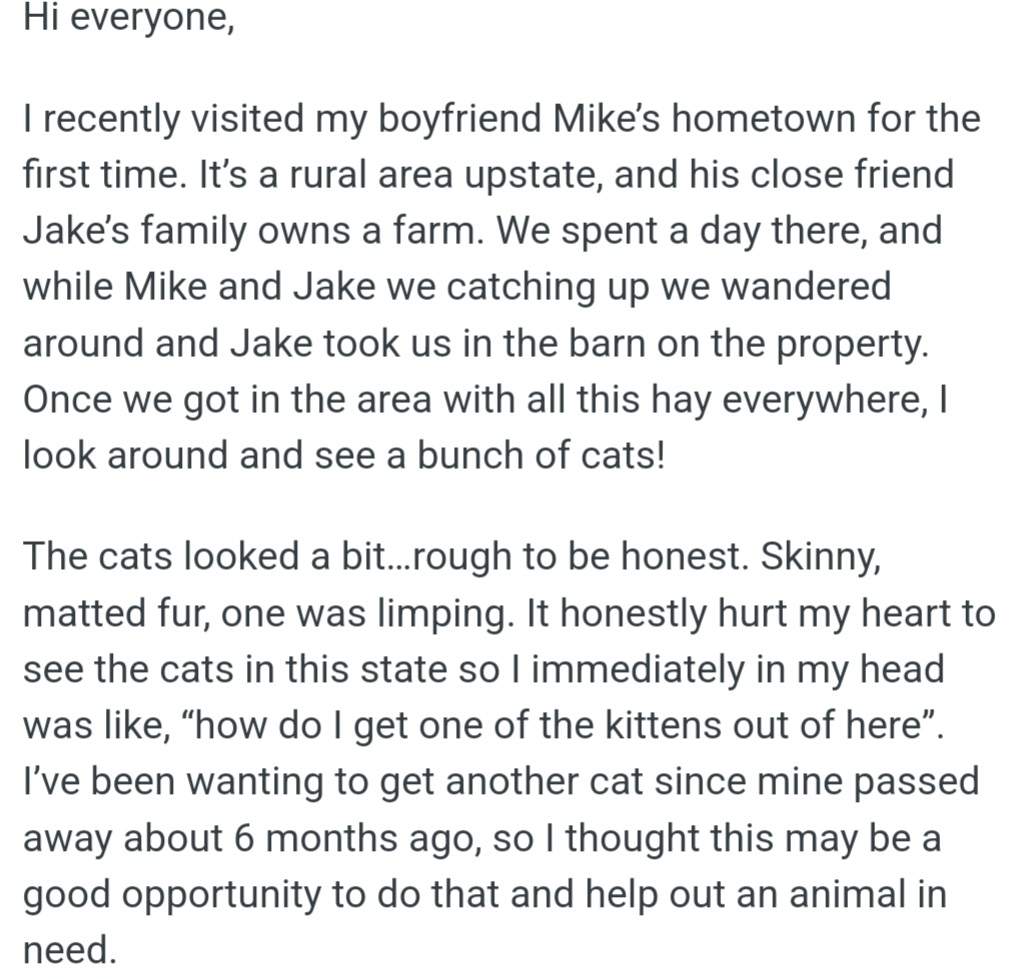
Cultural Differences in Pet Ownership
Dr. Fiona Greene, an anthropologist at the University of California, Berkeley, discusses how cultural attitudes toward pet ownership can significantly influence interpersonal relationships.
Her research indicates that individuals from urban backgrounds may approach pet care with a different set of expectations than those from rural environments, leading to potential conflicts when these worldviews collide.
Understanding these cultural nuances can help mitigate misunderstandings in situations like the one described.
OP wants to adopt a barn cat, but her boyfriend Mike refuses, telling her to mind her own business. She's concerned about the cats' well-being and wants to provide a loving home for just one.
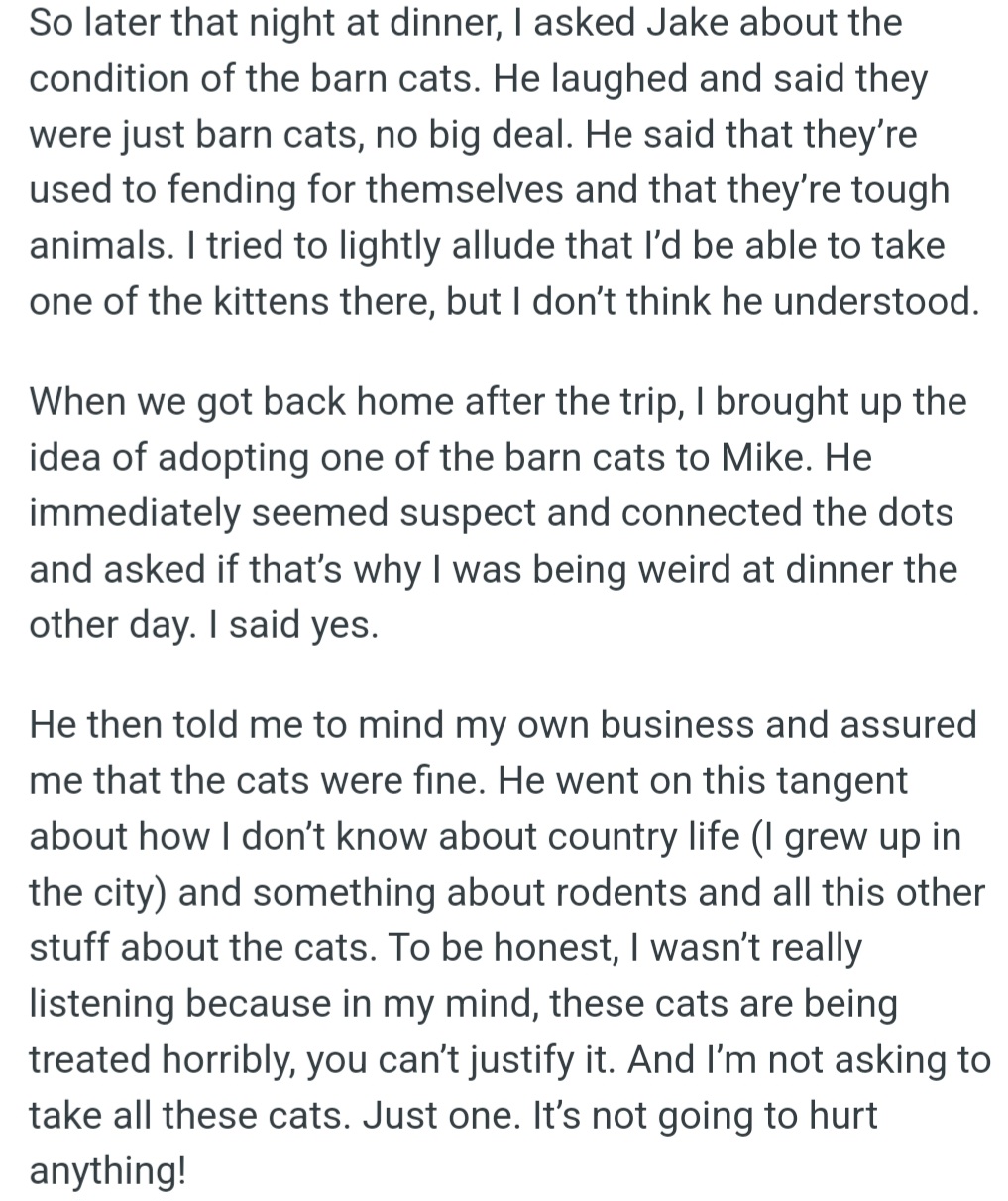
However, OP pushed to adopt a barn cat, but Mike got angry, saying she didn't understand. They argued, and now things are tense. OP still believes the cat would be better off with her, but Mike refuses.
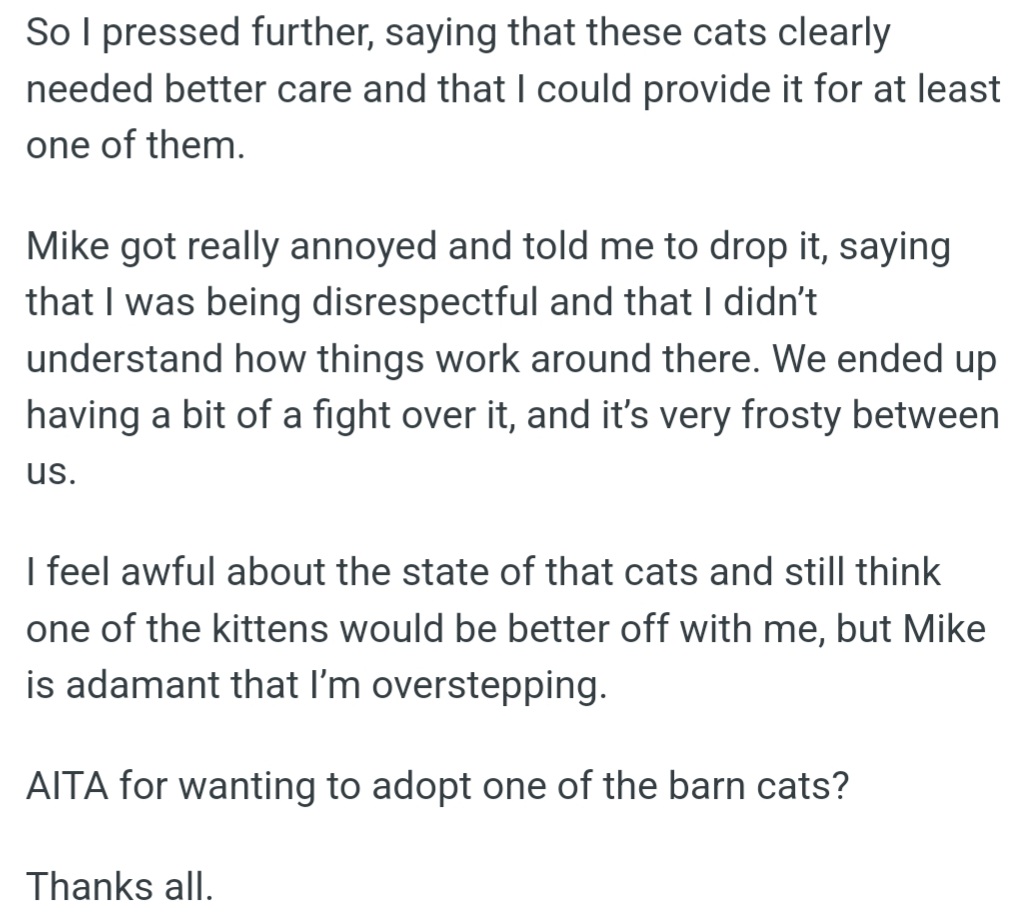
According to studies in cross-cultural psychology, differing values around animals can lead to tension in relationships, particularly when one partner feels strongly about animal welfare while another does not.
These discrepancies can create significant stress as each individual navigates their beliefs and expectations regarding pets.
Exploring these differences is essential for fostering empathy and understanding in pet-related discussions.
Check out some intriguing comments we've gathered from the Reddit Community;
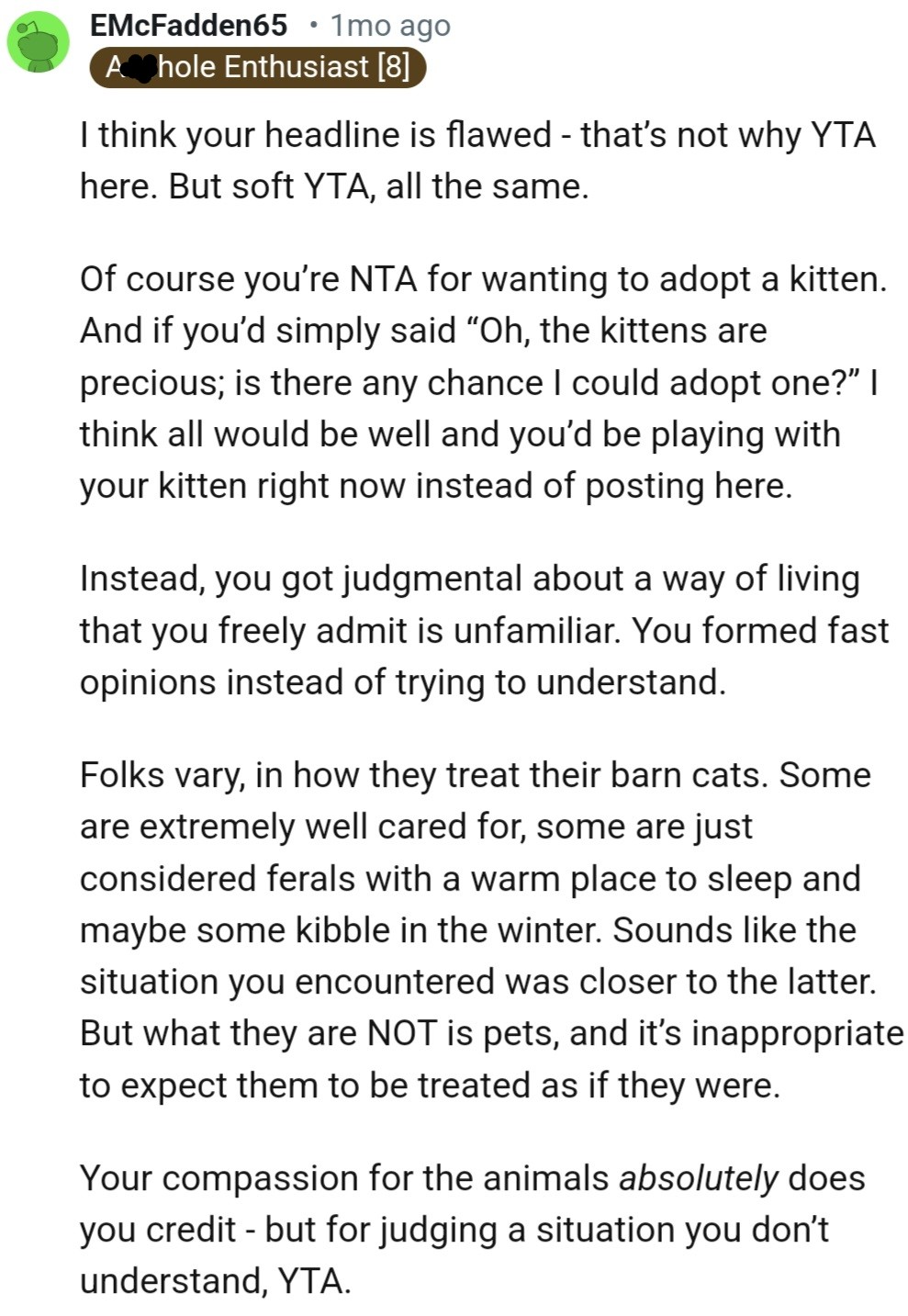
"These cats are mistreated and I can save one"
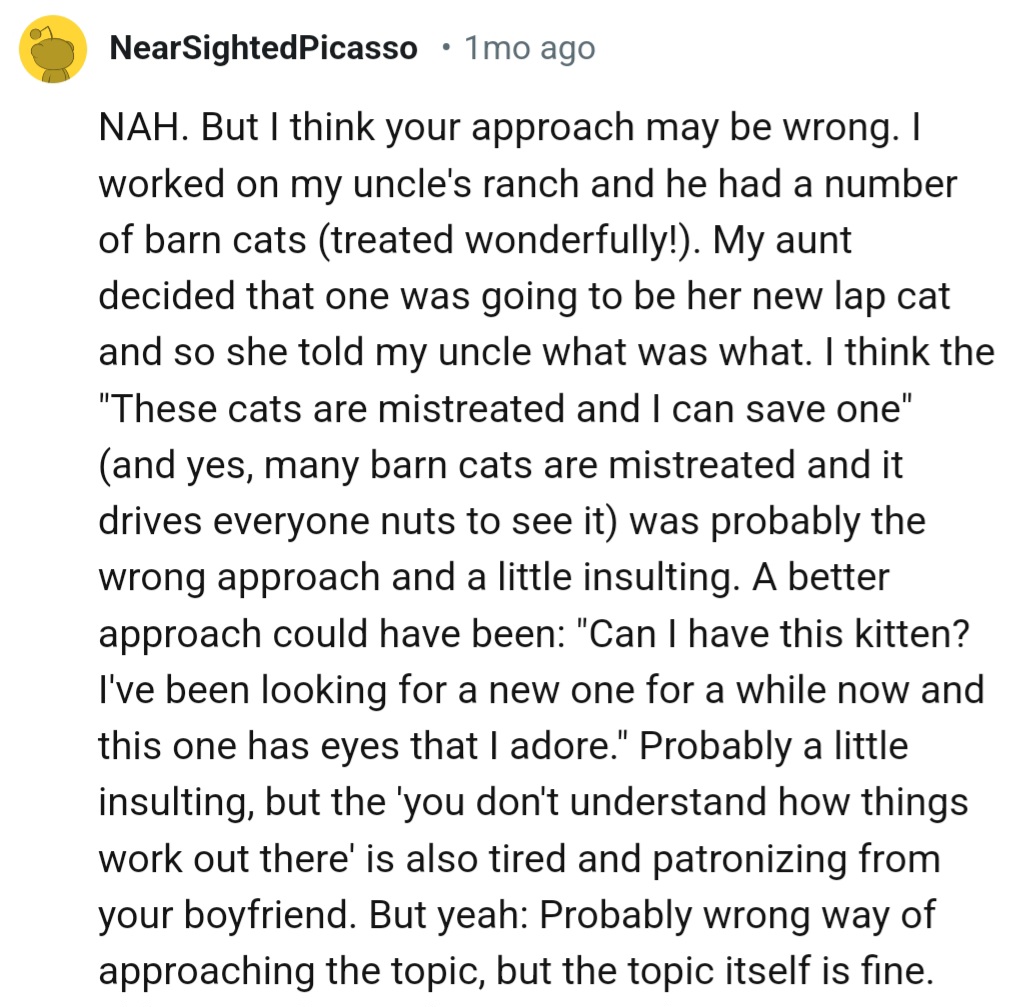
The Role of Compromise in Relationships
Research indicates that compromise is essential for navigating differences in relationships, particularly regarding lifestyle choices such as pet ownership.
When couples engage in discussions about their differing views on pets, it's crucial to approach the conversation with a willingness to find common ground.
This can involve discussing each person's needs and finding solutions that respect both perspectives.
"I don't really see how it's disrespectful to want to take home a cat especially if you say they are as injured and unwell as they are"

"Barn cats are not tamed animals"
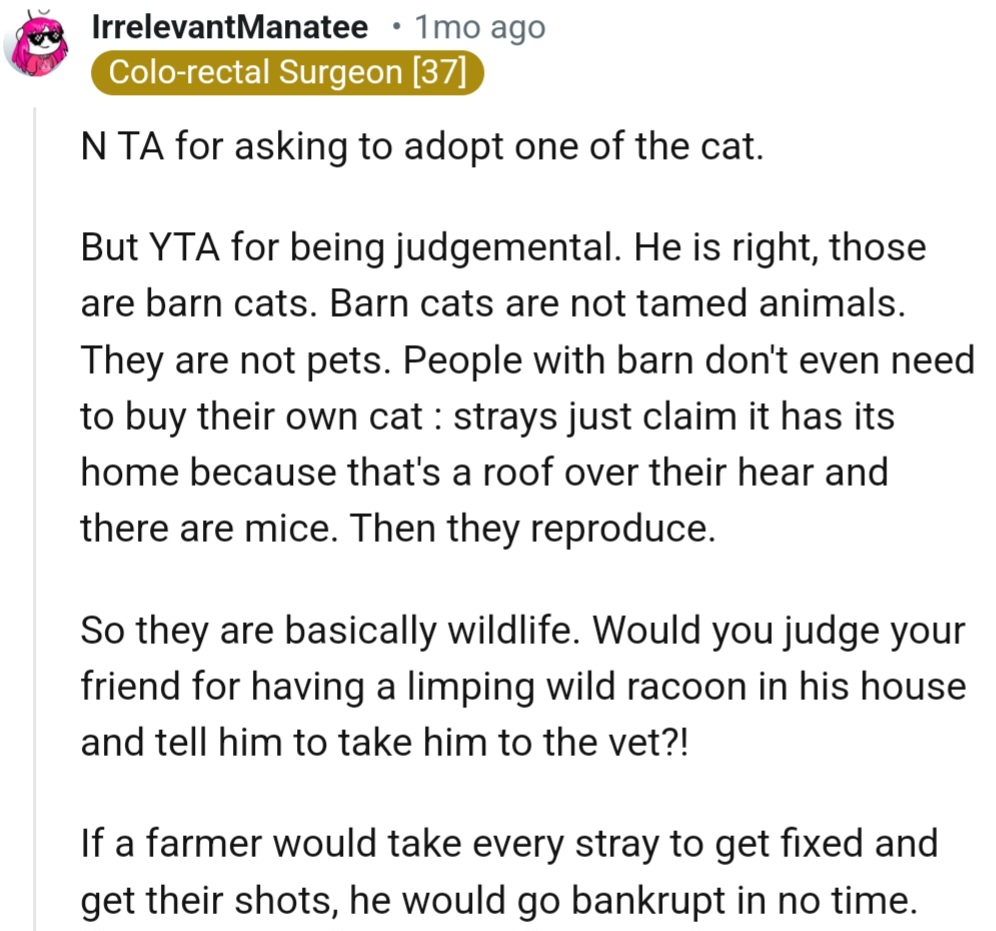
Experts recommend practicing active listening during these discussions to ensure that both partners feel heard and understood.
By validating each other's feelings and perspectives, couples can foster a more collaborative and supportive environment.
Such practices can help alleviate tension and build stronger relationships.
"Some feral cats that have been taken into shelters are specifically adopted out as barn cats"
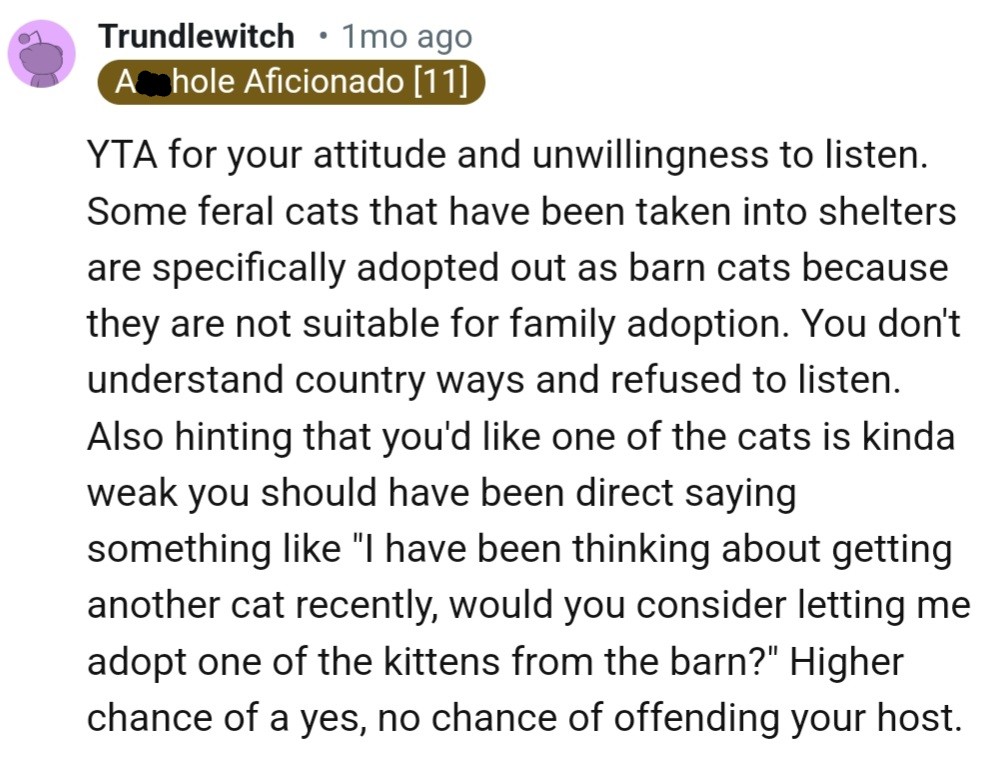
"While cats and dogs are pets for many folks on farms, they are more working animals".
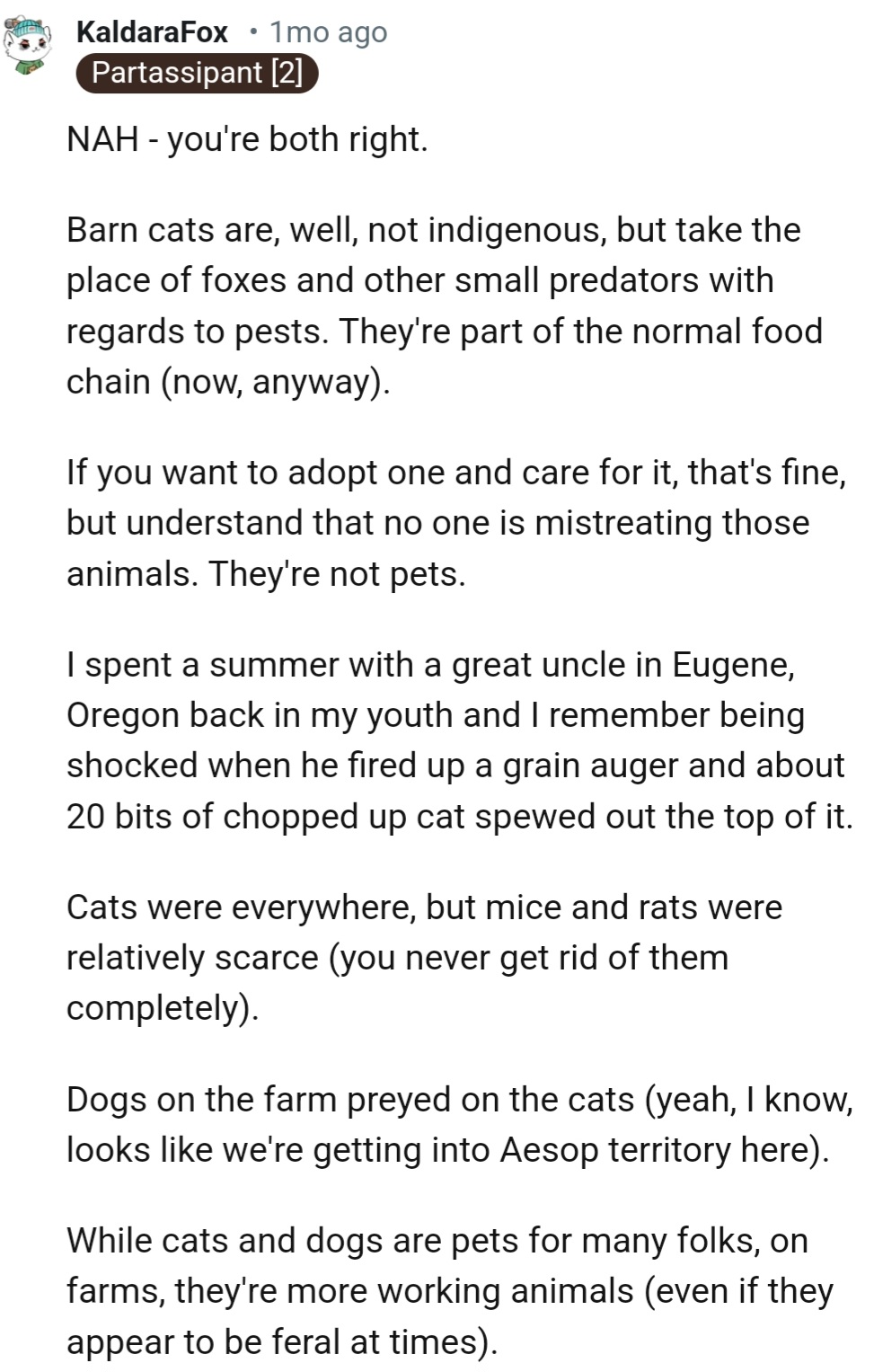
Redditors agreed that while OP wasn’t the AH for wanting to adopt one of the cats, she was the AH for criticizing a situation she clearly didn’t grasp.
Barn cats aren’t pets; they’re strays that adopt barns for shelter and food. While they deserve care, many are wild and feral—certainly not suited for indoor life.
OP should consider the nature of barn cats before pushing to adopt one as a house pet.
Do you agree with this verdict? Let us know in the comments.
"If I were you, I would dump your bf and contact animal control at the police dept near there"
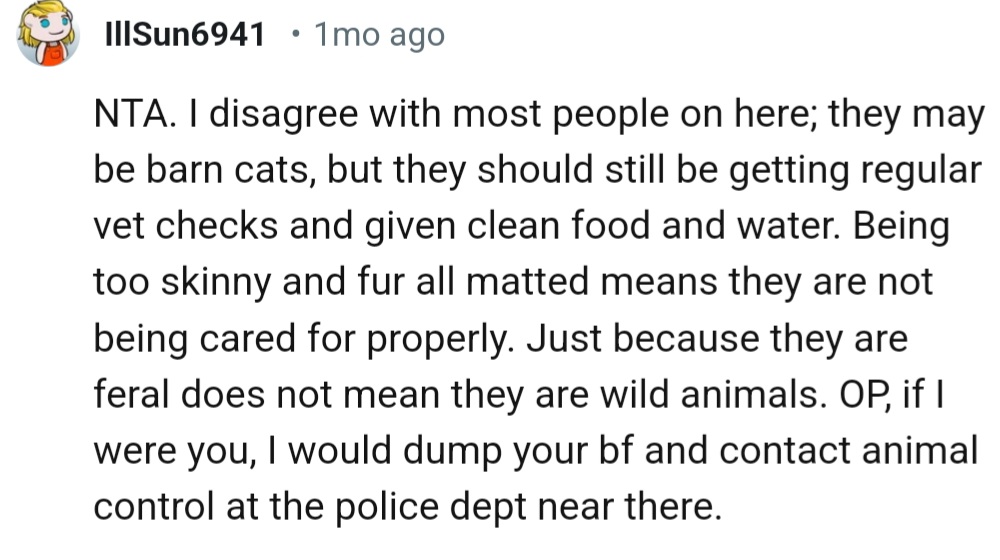
"I grew up in Montana and barn cats are sometimes wild feral animals"

Navigating Conflict in Relationships
Conflict is a natural part of any relationship, and understanding its roots can help partners navigate disagreements more effectively.
Research from the Journal of Conflict Resolution indicates that addressing underlying values and beliefs is key to resolving disputes.
When partners understand the reasons behind each other's perspectives, they can work toward mutually beneficial solutions.
Psychological Analysis
This situation illustrates the complexities that can arise when cultural differences in pet ownership come into play. Understanding each other's perspectives is crucial for navigating these conflicts. Open communication and a willingness to compromise are essential for fostering a healthy relationship.
Analysis generated by AI
Analysis & Alternative Approaches
In conclusion, navigating cultural differences in pet ownership requires understanding, compromise, and open communication.
Recognizing the values that underpin each partner's beliefs can help mitigate conflicts and strengthen relationships.
With the right approach, couples can create a harmonious environment that respects both perspectives.
Encouraging open dialogue about values and expectations can strengthen relationships, particularly in situations involving pets.
By establishing a safe space for discussion, partners can navigate their differences and create a more harmonious living environment.
Ultimately, fostering understanding and compromise can lead to stronger bonds and greater satisfaction in relationships.



